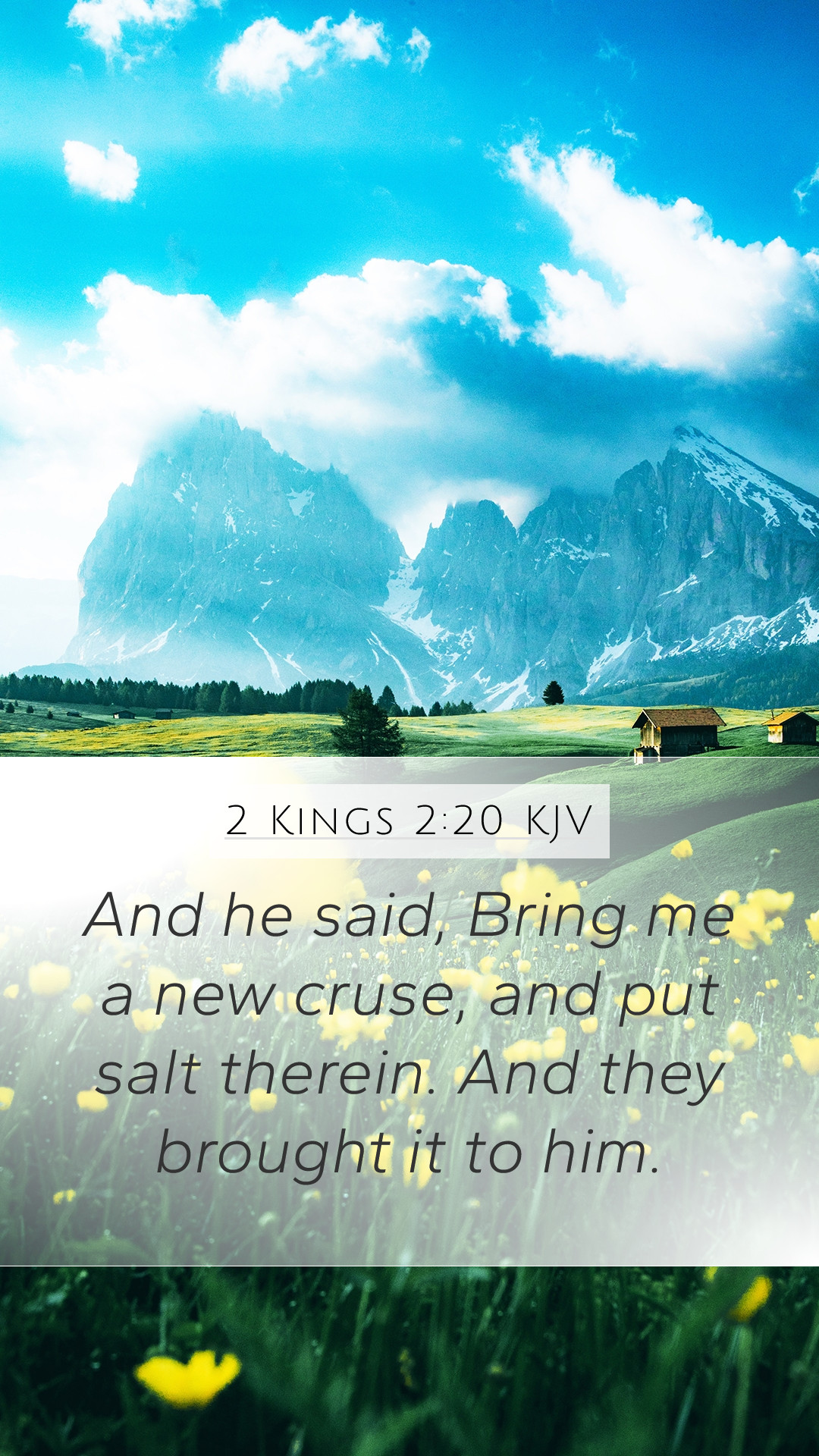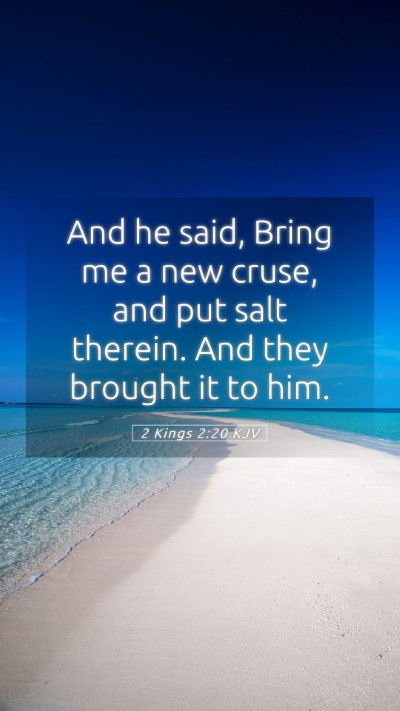Understanding 2 Kings 2:20
The verse from 2 Kings 2:20 states: "And he said, Bring me a new cruse, and put salt therein. And they brought it unto him."
Bible Verse Meaning
This passage occurs after the prophet Elijah was taken up into heaven. Elisha, his successor, has just begun his prophetic ministry and faces a critical moment in the city of Jericho, which had issues with its water supply.
Key Insights from Commentaries
-
Matthew Henry's Commentary:
Matthew Henry explains that the request for a new cruse (or jar) implies the necessity of fresh vessels for divine purposes. The salt symbolizes purification and healing, representing God's power to cleanse the unclean and bless what is lacking.
-
Albert Barnes' Commentary:
Albert Barnes notes the significance of salt in biblical symbolism. Salt is often viewed as a preservative and flavoring agent, alluding to God's covenant with His people. In this context, it represents the reclamation of the land's fertility and health through divine intervention.
-
Adam Clarke's Commentary:
Adam Clarke emphasizes the miraculous impact of the salt once it is poured into the water. This act demonstrates the almighty power of God through his servant Elisha, conveying the message that God can intervene in natural processes and bring restoration where there is decay.
Historical Context
When considering the historical context of 2 Kings 2:20, it is important to acknowledge that the city of Jericho had encountered significant issues with its water supply, which affected agriculture and general well-being. Jeremiah 6:6 references the importance of water in prosperity, and this issue acts as a symbol of God's blessing and protection over His people.
Theological Implications
This verse illustrates a key theological principle of dependency upon God's resources to remediate human limitations. It highlights the themes of:
- Divine Provision: The provision of God's resources through a chosen vessel.
- Restoration: God’s ability to restore not only the physical realm but also spiritual life.
- Faithful Servanthood: Elisha's obedience and dependence on God's directives are a model of faith for believers.
Applications for Today
In applying the lessons from this verse to contemporary life, one might consider:
- Hope in Restoration: Like the waters of Jericho, many aspects of modern life may feel unhealed or barren. Believers can look to God for restoration through prayer and faith.
- Use of Ordinary Resources: God can take the most mundane elements and infuse them with power and purpose. This encourages believers to recognize the potential in their circumstances and resources.
- Cleansing and Purifying Practices: Just as salt purified the waters, believers are called to be agents of change in their communities, promoting healing and grace.
Additional Bible Cross References
- Numbers 18:19 - Discusses the covenant of salt as a symbol of eternal commitment.
- Matthew 5:13 - Refers to believers as the salt of the earth, highlighting the role of Christians in society.
- 2 Chronicles 7:14 - Speaks of turning toward God for healing the land.
- Isaiah 43:2 - God promises presence in trials and restoration.
- Luke 4:18 - Proclaiming freedom and healing through divine ordination.
Closing Thoughts
In summary, 2 Kings 2:20 provides a profound lesson on the power of God's intervention and the importance of obedience to His commands. The water's healing symbolizes God's ability to restore life and vigor, providing an essential commentary on divine grace and our need for spiritual renewal.


